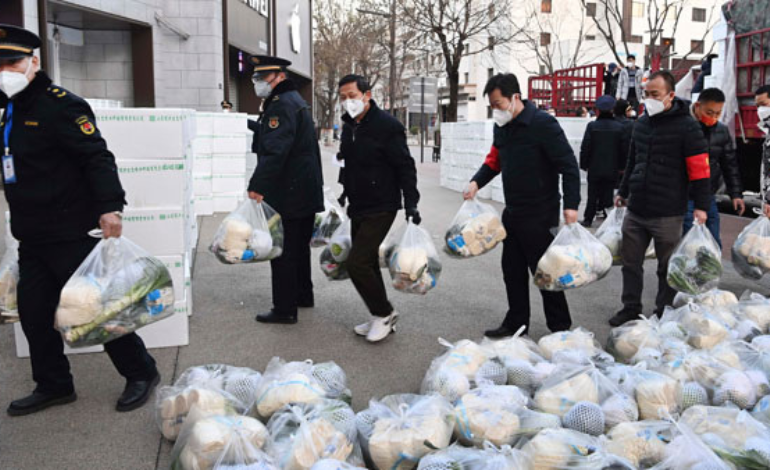
Millions of Chinese people who have been subjected to the dreadful lockdowns have turned to Hindi film legend Bappi Lahiri's big hit song "Jimmy Jimmy Aaja Aaja" from the 1982 film "Disco Dancer" to vent their rage and aggravation over the strict zero-COVID policy of their country.
People in the videos on the Chinese social media platforms Douyin—the Chinese name for TikTok—mockingly display empty vessels to demonstrate how they are denied of essential food items during the lockdowns. The lyrics of the song, which were composed by Lahiri and performed by Parvati Khan, are "Give me rice, give me rice" in Mandarin.
The video has so far managed to avoid being taken down by Chinese censors, who take swift action to take down any post deemed unfavourable of the government there.
From Raj Kapoor's era in the 1950s and 1960s to more recent years, when movies like "3 Idiots," "Secret Superstar," "Hindi Medium," "Dangal," and "Andhadhun" earned remarkably well at the Chinese box office, Indian movies have always had enormous popularity in China.
According to observers, Chinese have developed a smart method of employing "Jie mi, jie mi" to stage silent protests in an effort to draw attention to the public's suffering caused by the zero-COVID policy, which has effectively cut off China from the outside world.
Zero-COVID policy has entrapped China and put dozens of cities, including Shanghai, which has a population of over 25 million, on lockdown for weeks with residents confined to their apartments.
Numerous videos have surfaced showing security staff harshly reprimanding protesters of the lockdowns.
Following a virus outbreak and allegations of unsafe working conditions, workers engaged to assemble Apple Inc.'s newest iPhone staged a walkout from a facility in central China's Zhengzhou.
Several workers reportedly fell ill in the middle of October but went untreated, prompting workers to start leaving the Foxconn factory.
After reporting 802 cases the day before, China reported 2,675 cases on Sunday.
In accordance with President Xi Jinping's zero-COVID policy, cities and localities are required to implement strict lockdowns, and if any positive cases are recorded, local residents are sent to quarantine facilities.
Beijing is one of the several places where testing is required for all citizens. In cities, people are prohibited from entering marketplaces and restaurants without negative test results.